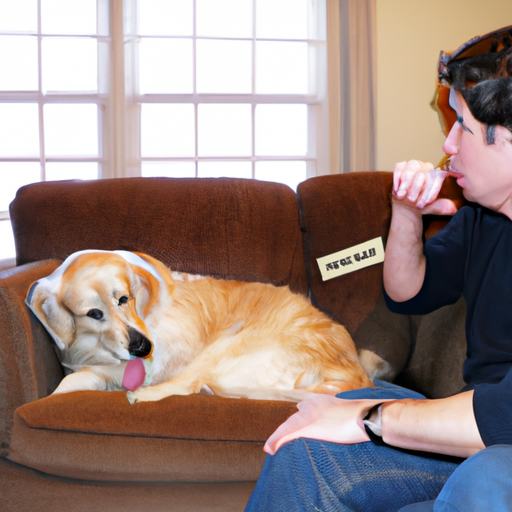As a vigilant guardian of your furry companion, you might have noticed an intriguing behavior; your dog constantly licking their paws. While it may seem like a normal grooming routine at first, when it becomes a frequent occurrence, it’s only natural to wonder, “why do dogs lick their paws constantly?”
- Understanding Canine Paw Licking
- Possible Causes of Paw Licking
- When to Seek a Veterinarian’s Help
- Ways to Help Your Dog
- Frequently Asked Questions
Key takeaways:
- Dogs can lick their paws for various reasons, from injuries and allergies to boredom and anxiety.
- Persistent paw licking can lead to skin infections and further complications.
- It’s essential to consult a veterinarian if your dog’s paw licking becomes excessive or compulsive.
Understanding Canine Paw Licking
Dogs use their mouths as we do our hands; it’s their way of exploring the world. Licking can be a part of their grooming routine, a way to heal wounds, or even a stress-relieving habit. However, persistent paw licking can be a sign of a deeper issue, either medical or behavioral.
Possible Causes of Paw Licking
In order to help your canine friend, it’s crucial to understand the potential reasons behind their behavior.
Medical Causes
1. Allergies
Dogs can have allergies, just like humans. These can be due to food, environmental factors (like pollen or dust mites), or even certain materials like plastic. Allergies can cause itchy skin and discomfort, leading your dog to lick their paws for relief. PetMD provides an extensive guide on dog allergies, which can help you identify potential allergens.
2. Injuries
Paw injuries such as cuts, sores, or splinters can cause your dog considerable discomfort. In this case, licking is an instinctive response to soothe the pain or clean the wound.
3. Infections
Bacterial or fungal infections can cause itching and inflammation. Dogs might lick their paws to relieve these symptoms.
4. Parasites
Fleas, ticks, or mites can cause severe itching, leading to constant paw licking.
Behavioral Causes
1. Boredom or Anxiety
Dogs are social creatures that require physical and mental stimulation. Lack of activity can lead to boredom, which they might counteract through paw licking. Similarly, anxiety can also manifest in the form of compulsive behaviors like licking.
2. Habitual Behavior
Sometimes, paw licking can become a habit, especially if the dog has been doing it for a long time due to a medical condition. Even after the medical issue is resolved, they might continue the behavior out of habit.
For more information about behavioral causes of paw licking, you might find this article on One Top Dog helpful.
When to Seek a Veterinarian’s Help
If your dog’s paw licking becomes excessive or compulsive, it’s time to consult a veterinarian. Persistent licking can lead to secondary infections, hot spots, and even a condition known as lick granuloma.
Here are some signs that it’s time for a vet visit:
- Your dog’s paws are red, swollen, or have an unpleasant odor.
- Your dog is limping or showing signs of pain.
- The licking is compulsive and interrupts their daily activities.
Ways to Help Your Dog
If your dog’s paw licking is due to a medical condition, the treatment will depend on the specific cause. Allergies might require dietary changes, injuries need proper care, and infections or parasites call for specific medications.
For behavioral causes, here are some ways you can help:
- Provide sufficient physical and mental stimulation. Regular exercise, playtime, and interactive toys can keep your dog engaged.
- Practice positive reinforcement to discourage excessive licking.
- If anxiety is the cause, calming techniques, such as massage or music therapy, can be beneficial.
As always, it’s essential to consult a professional for the best course of action. This information on when to take your dog to the vet can help you make informed decisions.
Frequently Asked Questions
1. Is it normal for dogs to lick their paws?
Yes, occasional paw licking is normal for dogs as part of their grooming routine. However, constant or compulsive paw licking can indicate a problem.
2. Can I stop my dog from licking their paws?
If your dog’s paw licking is due to a medical condition, treating the condition should help stop the behavior. If it’s a behavioral issue, providing mental and physical stimulation, along with positive reinforcement, can help.
3. When should I be concerned about my dog licking their paws?
If your dog’s paw licking is constant, compulsive, or causing visible discomfort, it’s time to consult a veterinarian.
Understanding your dog’s behavior is the first step towards ensuring their well-being. Remember, your dog relies on you for their care, so always be observant, patient, and proactive in seeking help when needed.



